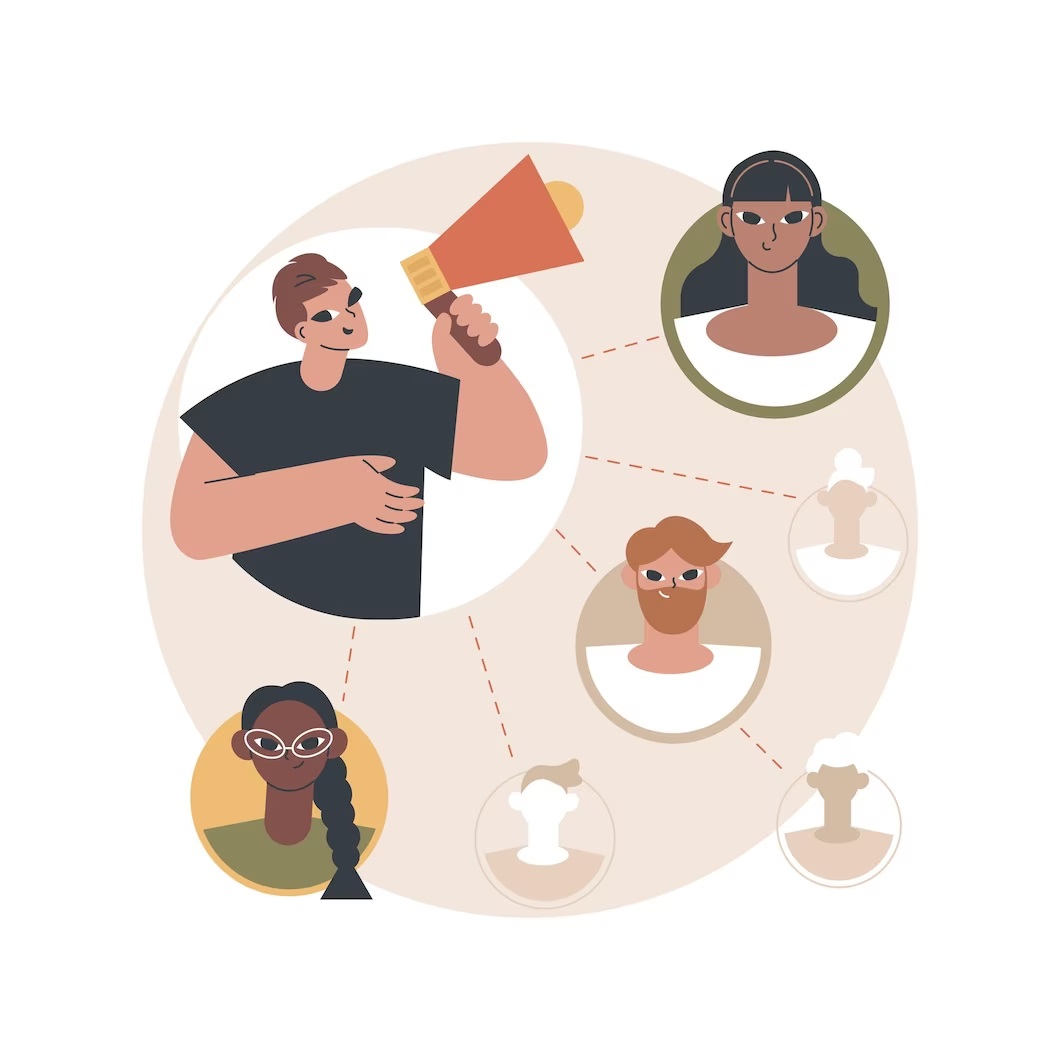Balancing Assertiveness and Empathy in Conversations
Balancing Assertiveness and Empathy in Conversations
Having effective communication with people involves balancing assertiveness and empathy. Assertiveness is the ability to express oneself in a confident and direct manner. On the other hand, empathy is the capacity to understand other people's thoughts and feelings. A conversation that lacks assertiveness may come off as passive, and one that lacks empathy could be seen as cold and indifferent. Striking a balance between the two is therefore essential in building and maintaining healthy relationships.
Being assertive does not mean being pushy or rude. It only means that you state your views with clarity and confidence. While speaking up, it is also crucial to recognize and value the feelings and perspectives of others. Empathy enables you to communicate in a way that validates the experiences and emotions of the person you are speaking with. It is necessary to acknowledge that everyone has their point of view and that listening to them creates a safe communication space where a two-way conversation can take place.
In conclusion, balancing assertiveness and empathy in conversations is an art that can be learned with practice. Effective communication involves knowing when to assert oneself and when to empathize with others. When both traits are combined, communication can be productive, meaningful, and fulfilling. The ability to balance assertiveness and empathy is not only vital in personal relationships but also in professional ones, where clear communication is essential for success. With a little effort and a willingness to learn, anyone can become adept at this skill.
Benefits of Combining Assertiveness and Empathy
Assertiveness and empathy are two important qualities that can make a significant difference in both personal and professional lives. When combined, these traits can work wonders in a wide range of situations. Assertiveness helps you communicate and stand up for yourself in a clear and confident manner, while empathy enables you to see things from others' perspectives and respond with compassion. Together, assertiveness and empathy can help build better relationships, promote understanding, and create a more positive and productive environment.
In the workplace, combining assertiveness and empathy can lead to improved communication, increased productivity, and stronger team dynamics. By being assertive but also empathetic to others' needs and concerns, you can address conflicts in a respectful manner that promotes collaboration rather than division. This can lead to greater creativity, innovation, and problem-solving ability, as team members feel comfortable sharing their ideas and working together towards a common goal. Additionally, assertive yet empathetic leaders are often seen as approachable and supportive, creating a culture of trust and mutual respect in the workplace.
Assertiveness and empathy are also essential in personal relationships. Knowing how to stand up for yourself while still being understanding and caring towards others can help prevent misunderstandings and conflicts. This can lead to more constructive communication, deeper connections, and a greater sense of mutual support and respect. By practicing assertiveness and empathy together, you can become a better listener, a more effective communicator, and a more compassionate human being overall. These qualities can benefit all aspects of your life, from your social interactions to your personal growth and wellbeing.
Understanding Assertiveness and Empathy
Assertiveness and empathy are two critical traits that individuals need to have to maintain healthy relationships. Assertiveness involves expressing one’s needs, wants, and feelings but respecting others’ rights, while empathy is the ability to understand and share the feelings of others. It is essential to balance both in any relationship, as a lack of assertiveness can lead to resentment, while a lack of empathy can lead to a lack of understanding and connectivity between individuals.
Assertiveness is an important skill to develop, as it empowers individuals to communicate their thoughts and feelings effectively. Those who are assertive can express their needs and wants without being aggressive or passive. When practiced appropriately, assertiveness can help people address conflicts and resolve them effectively, leading to stronger relationships. Empathy, on the other hand, requires individuals to step out of their shoes and place themselves in another’s situation. It is a skill that can be challenging to develop but incredibly rewarding in the long run.
In conclusion, assertiveness and empathy are essential traits for individuals to have to maintain healthy relationships. Both skills require individuals to be aware of themselves and their surroundings, communicating their thoughts and feelings respectfully and understanding those of others. Developing these skills can help individuals build long-lasting relationships that are rewarding, fulfilling, and nurturing. Ultimately, the practice of assertiveness and empathy is not only beneficial for our personal relationships but can lead to success in our professional lives as well.
Recognizing When to Use Use Assertiveness and Empathy
Assertiveness and empathy are two important communication skills that help in building strong interpersonal relationships. Knowing when to use each of these skills is crucial in both personal and professional settings. Assertiveness involves expressing one's thoughts, feelings, and needs in a clear and direct manner without violating the rights of others. On the other hand, empathy refers to the ability to understand and share the feelings of others. It involves listening actively, demonstrating concern and compassion, and avoiding judgement. In situations involving conflict or negotiation, assertiveness can be more appropriate, while empathy is useful in situations that require support, comfort, or understanding.
Using assertiveness involves being clear and specific about one's needs while respecting the needs of others. It requires confidence, directness, and control of one's emotion. When used effectively, assertiveness can help in maintaining boundaries, expressing disagreement, and negotiating effectively. However, it must be used judiciously to avoid being perceived as aggressive or hostile. Empathy, on the other hand, involves putting oneself in the shoes of others and seeing things from their perspective. It is useful in building trust, fostering collaboration, and strengthening relationships. It requires active listening, acknowledging emotions, and showing genuine concern.
The ability to switch between assertiveness and empathy depending on the situation is a key skill in effective communication. Recognizing when to use each of these skills involves being aware of the context, the people involved, and the goals that need to be achieved. Situations that require assertiveness include those involving negotiation, conflict resolution, and decision making, while those that require empathy include those involving emotional support, feedback, and relationship building. However, it is important to note that assertiveness and empathy are not mutually exclusive and can be used together to enhance communication and achieve better outcomes. By combining assertiveness with empathy, communication can be more effective, collaborative, and respectful.
Communicating Assertively and Empathetically
Assertive communication is a vital skill that helps individuals convey their thoughts and feelings confidently and effectively. By expressing oneself assertively, people can communicate their opinions, beliefs, and expectations without disregarding the rights and feelings of others. Empathetic communication, on the other hand, is about understanding the emotions, perspectives, and needs of others. By using empathy when communicating, individuals can build trust, strengthen relationships, and form meaningful connections with others.
To communicate assertively and empathetically, it's essential to understand the different communication styles and how they affect the outcome of any interaction. Passive communicators tend to avoid confrontation, express themselves poorly, and seldom advocate for their needs. Aggressive communicators, on the other hand, tend to disregard the feelings and rights of others, use coercion and manipulation to get what they want, and often create conflict and hostility. Assertive communicators, on the other hand, express themselves confidently and respectfully, use clear and straightforward language, and advocate for their needs while considering the needs of others.
To communicate assertively and empathetically, individuals must develop self-awareness, emotional regulation, and active listening skills. It's also essential to use clear, direct, and non-judgmental language, make eye contact, and use appropriate body language. Additionally, individuals must learn to acknowledge and validate the feelings and perspectives of others, without necessarily agreeing with them. By communicating assertively and empathetically, individuals can build mutual respect, understanding, and have their needs met without compromising the rights and feelings of others.
Balancing Assertiveness and Empathy in Difficult Conversations
Difficult conversations can be quite challenging, especially if they involve sensitive issues or people. It is natural to feel anxious or uncomfortable while having a difficult conversation. However, it is essential to strike a balance between assertiveness and empathy to effectively communicate your message. Assertiveness helps you express your concerns firmly and confidently, whereas empathy allows you to understand the other person's perspective.
One of the primary reasons why people struggle with difficult conversations is because they often prioritize one aspect over the other. Sometimes, people become too assertive and direct in their approach, which can come across as aggressive or confrontational. On the other hand, some people focus too much on empathy, which can dilute their message and undermine their position. Therefore, it is crucial to balance both features appropriately.
One way to achieve this balance is to use a collaborative communication style. Collaborative communication involves active listening, expressing your thoughts and concerns respectfully, and finding mutually beneficial solutions. This approach acknowledges both parties' feelings and interests and fosters a conducive environment that promotes understanding and constructive feedback. By using collaborative communication, you can strike a balance between assertiveness and empathy, which leads to more effective and lasting solutions.
Tips for Remaining Assertive and Empathetic
Assertiveness and empathy are two traits that can sometimes be seen as being in conflict with each other. Developing and maintaining both of these qualities, however, is important for effective communication and successful relationships. One key to achieving this balance is to express yourself authentically while also being receptive to the thoughts and feelings of others. This requires active listening, verbal and nonverbal communication skills, and a willingness to compromise when necessary. When you can assert yourself without attacking or belittling others, and when you can empathize without losing your sense of self, you will be able to build stronger connections and resolve conflicts more effectively.
Another way to maintain assertiveness and empathy is to focus on your own values and priorities while also respecting those of others. This means standing up for what you believe in, but also being open to new perspectives and ideas. When you lead with integrity and a willingness to learn, you will be better able to engage in productive conversations and find common ground with others. Additionally, taking care of yourself both physically and emotionally can help you remain centered and balanced. This can involve practices such as exercise, meditation, and spending time in nature, as well as seeking support from friends and family when needed.
Finally, it is important to recognize that assertiveness and empathy are not stagnant qualities. You may need to adjust your approach depending on the situation or the person you are interacting with. For example, when dealing with someone who is highly emotional, you may need to dial up your empathy while also being firm in your communication. When working with a team or group, you may need to more assertively communicate your ideas and goals while also being open to compromise and collaboration. By remaining flexible and adaptable, you can navigate a variety of situations with confidence and grace.
Maintaining Assertiveness and Empathy in Long-Term Conversations
Maintaining assertiveness and empathy in long-term conversations can be a challenging task, as it involves striking a delicate balance between communicating effectively and maintaining respectful relationships. One of the key aspects of maintaining assertiveness is being honest and direct with your communication. This involves clearly communicating your thoughts, opinions, and feelings without any ambiguity to ensure that your message is heard loud and clear. At the same time, it is equally important to be empathetic towards the other person's thoughts and feelings, as this creates a positive and conducive environment for the conversation to take place in.
Another important aspect of maintaining assertiveness and empathy in long-term conversations is active listening. When you listen actively, you not only understand the other person's words but also their emotions and intent behind their words. This helps you respond in a way that resonates with the other person and ensures that the conversation is productive and mutually beneficial. Additionally, it also helps build trust and rapport with the other person, which is crucial in maintaining a positive long-term relationship. However, active listening can be a challenging skill to master, and it requires practice and patience for effective implementation.
When it comes to maintaining assertiveness and empathy in long-term conversations, it is also important to set boundaries and expectations. This involves being clear about what you are willing and unwilling to discuss, as well as what you expect from the other person in the conversation. Setting boundaries and expectations not only helps you maintain your assertiveness but also demonstrates your respect for the other person's viewpoints and expectations. Additionally, it helps keep the conversation on track and avoids any potential misunderstandings or disagreements that could jeopardize your relationship. Overall, maintaining assertiveness and empathy in long-term conversations is a delicate balance that requires active listening, honesty, empathy, and setting boundaries and expectations.
Using Assertiveness and Empathy for Conflict Resolution
Assertiveness and empathy are two essential qualities that are necessary for conflict resolution. Assertiveness can be described as the ability to express oneself confidently, and stand up for one's own rights, while empathy refers to the capacity to understand and share the feelings of others. A combination of these two qualities can lead to effective communication and negotiation, which is crucial for resolving conflicts in a positive manner.
In order to use assertiveness and empathy for conflict resolution, it is important to first listen carefully to the other person's perspective. This will help you understand their point of view and emotions, which is essential for developing empathy. Once you understand their position, you can confidently express your own viewpoint and needs, without being aggressive or confrontational. By communicating with confidence and respect, you will be able to negotiate a mutually beneficial solution that satisfies the needs of both parties.
Assertiveness and empathy can be particularly useful when dealing with challenging personalities or conflicts that seem impossible to resolve. By expressing your needs and feelings clearly, you can evoke empathy in the other person, which reduces defensiveness and creates an atmosphere of mutual understanding. Similarly, by empathizing with the other person's perspective, you can gain their trust and respect, which can help you negotiate a more satisfactory outcome. In short, the combination of assertiveness and empathy can be a powerful tool for resolving conflicts in a positive and constructive way.
Applying Assertiveness and Empathy to Professional Relationships
Assertiveness and empathy are two critical skills that every professional must-have. These two go hand in hand in building and strengthening professional relationships. Assertiveness is speaking up your thoughts, feelings, and beliefs while remaining respectful of others, while empathy is your capacity to understand and share the feelings of others. Applying these skills will enable you to become more effective and successful in your professional career. It will help you to communicate effectively, handle conflicts, and form healthy professional relationships with your colleagues and clients. By being assertive and empathetic, you will be able to build trust, respect, and rapport with the people you work with.
One of the most significant benefits of applying assertiveness and empathy in professional relationships is better communication. When you are assertive, you express yourself clearly and directly, which helps avoid misunderstandings and conflicts. When you add empathy to the mix, you become more aware of other people's perspectives and feelings, allowing you to tailor your communication to their needs. This approach leads to more productive conversations, where both parties feel heard and understood. Good communication builds trust, encourages collaboration, and helps establish strong professional relationships. By becoming skilled at assertiveness and empathy, you will create a positive environment that fosters teamwork and success in your workplace.
Another advantage of applying assertiveness and empathy in professional relationships is better conflict resolution. Conflicts are inevitable in any workplace, and how you handle them can make or break your professional relationships. When you apply assertiveness, you communicate your needs, wants, and boundaries without disempowering others. When you add empathy, you become a better listener, show more understanding, and meet others' needs. You can then use your assertiveness and empathy skills to work towards a mutually beneficial outcome. This approach to conflict resolution strengthens professional relationships, creates a positive work environment and builds a culture of mutual respect and understanding.
Cultivating Assertiveness and Empathy in Personal Conversations
In personal conversations, it is crucial to cultivate both assertiveness and empathy to establish effective dialogue. Assertiveness is the ability to express one's thoughts and feelings clearly and directly without violating the rights of others, while empathy is the ability to put oneself in someone else's shoes and understand their emotions. When these two qualities are balanced, it creates a harmonious environment where both parties can communicate authentically without fear of being judged or misunderstood. To cultivate assertiveness, one must learn to communicate clearly, confidently, and respectfully. This requires setting boundaries, expressing needs and wants clearly, and taking responsibility for one's own feelings. On the other hand, empathy is developed through active listening, being present in the moment, and seeking to understand the emotions and perspectives of others.
To balance assertiveness and empathy, it is important to practice active listening, which involves giving full attention to the speaker without interrupting or judging. Active listening helps to build trust and rapport, creating a safe space where both parties can express themselves freely. Additionally, choosing the right words and tone is essential for effective communication. People who are assertive without empathy can come across as aggressive, while those who are empathetic without being assertive can appear passive. By balancing both qualities, conversations become more productive and fulfilling for all parties involved.
In conclusion, cultivating assertiveness and empathy in personal conversations is essential for building healthy relationships and effective communication. By practicing clear and respectful communication techniques and developing active listening skills, individuals can create an environment that fosters openness, trust, and mutual understanding. Balancing assertiveness and empathy may take time and practice, but with perseverance, anyone can master the art of effective communication and create more meaningful interactions with others.
Making Assertiveness and Empathy Effective Strategies
Assertiveness and empathy are two key skills required in today's world. When it comes to effective communication and relationship building, assertiveness helps individuals to be confident and direct in expressing their needs and wants. On the other hand, empathy allows individuals to understand the emotions and perspectives of others. Though these skills are considered to be polar opposites, both of them are essential in forming healthy and fruitful relationships. When used together, assertiveness and empathy can help individuals build lasting and meaningful relationships.
Assertiveness can be taught and developed by practising clear communication and setting boundaries. It is important to communicate effectively while being respectful of others. Being assertive helps individuals to express their thoughts and feelings honestly without causing conflicts. Empathy involves putting oneself in the position of the other person to understand their emotions and feelings. It is a skill that can be developed by actively listening, observing and acknowledging the feelings of others. Empathy is essential in building strong connections that help individuals understand and support others in challenging times.
Making assertiveness and empathy effective strategies can lead to increased confidence and better relationships. When individuals use both assertiveness and empathy simultaneously, they are more likely to be heard and understood. They are also more likely to form strong connections that can weather tough times. It is important to balance the two skills and learn when to use one over the other. Effective communication is grounded in assertiveness and empathy, so when individuals use these strategies, they can expect better outcomes and healthier relationships.
Managing Assertiveness and Empathy for Outcomes
The effectiveness of any leader rests on their ability to manage relationships. This means finding the balance between assertiveness and empathy. Assertiveness is the capacity to be decisive and stand up for oneself without infringing on the rights of others. It is important for leaders to be assertive when pursuing their objectives but also to manage their emotional responses to avoid being aggressive or abrasive. Leaders who lack assertiveness fail to inspire confidence and often struggle to make tough decisions. On the other hand, leaders who are excessively assertive can alienate team members and create a negative working environment. This is why effective leadership requires mastering assertiveness and empathy. A leader must find the sweet spot that combines their assertive nature with empathic responses to the needs of their team members, colleagues, and customers.
Empathy is the ability to understand and share the feelings of others. It is a valuable skill that enables leaders to build strong relationships, foster collaboration, and inspire loyalty. Empathy is particularly important in diverse and multicultural workplaces, where people from different background have different experiences, perspectives, and expectations. Empathy can help leaders to appreciate these differences and show appreciation and respect for their team members, even when they disagree or conflict arises. Leaders who lack empathy often come across as cold or indifferent, which can create mistrust, resentment, and low morale. Leaders who show genuine interest in the well-being of their team members are more likely to cultivate a positive and productive working climate.
Managing assertiveness and empathy does not mean compromising one's values or personal style. It means developing the self-awareness, emotional intelligence, and communicative skill needed to adjust one's approach and behavior to different situations and individuals. Effective leaders are able to modulate their assertiveness and empathy based on the context, goals, and audience, without losing their authenticity or integrity. They recognize that what works for one team member or project may not work for another, and are willing to adapt their leadership style accordingly. This requires active listening, openness to feedback, and a willingness to learn and grow. By mastering assertiveness and empathy, leaders can create a positive and productive work environment, foster team cohesion, and achieve outstanding outcomes.
Overcoming Unbalanced Assertiveness and Empathy
Overcoming unbalanced assertiveness and empathy is a skill that is important in both personal and professional contexts. People who lean too heavily towards one end of this spectrum may struggle to form successful relationships, both socially and in the workplace. Finding the right balance can be challenging, but is achievable with practice and self-reflection. It is important to develop self-awareness to recognize when behavior may be leaning too far in one direction or the other. By acknowledging these tendencies, one can begin to actively address them and strive toward a more balanced approach.
Unbalanced assertiveness can manifest in a variety of ways. For example, individuals who are overly assertive may find that their relationships suffer as they struggle to empathize with those around them. Additionally, they may struggle to work collaboratively or effectively lead teams, as they may seem domineering or unapproachable. On the other end of the spectrum, unbalanced empathy can also be detrimental. People who empathize too heavily may become overly consumed by the feelings of others and struggle to prioritize their own needs. This can be particularly problematic in leadership roles, where it is important to make difficult decisions that may not always be popular.
To overcome these imbalances, it is important to work on developing self-awareness and empathy. Practicing active listening techniques can be an effective way to increase empathy, while setting boundaries and practicing self-advocacy can help with assertiveness. Additionally, taking time to reflect on interactions that may have been unbalanced and seeking feedback from trusted colleagues and friends can be useful in identifying areas for improvement. With time and effort, it is possible to find an effective balance between assertiveness and empathy that can lead to stronger relationships and greater success in both personal and professional settings.



